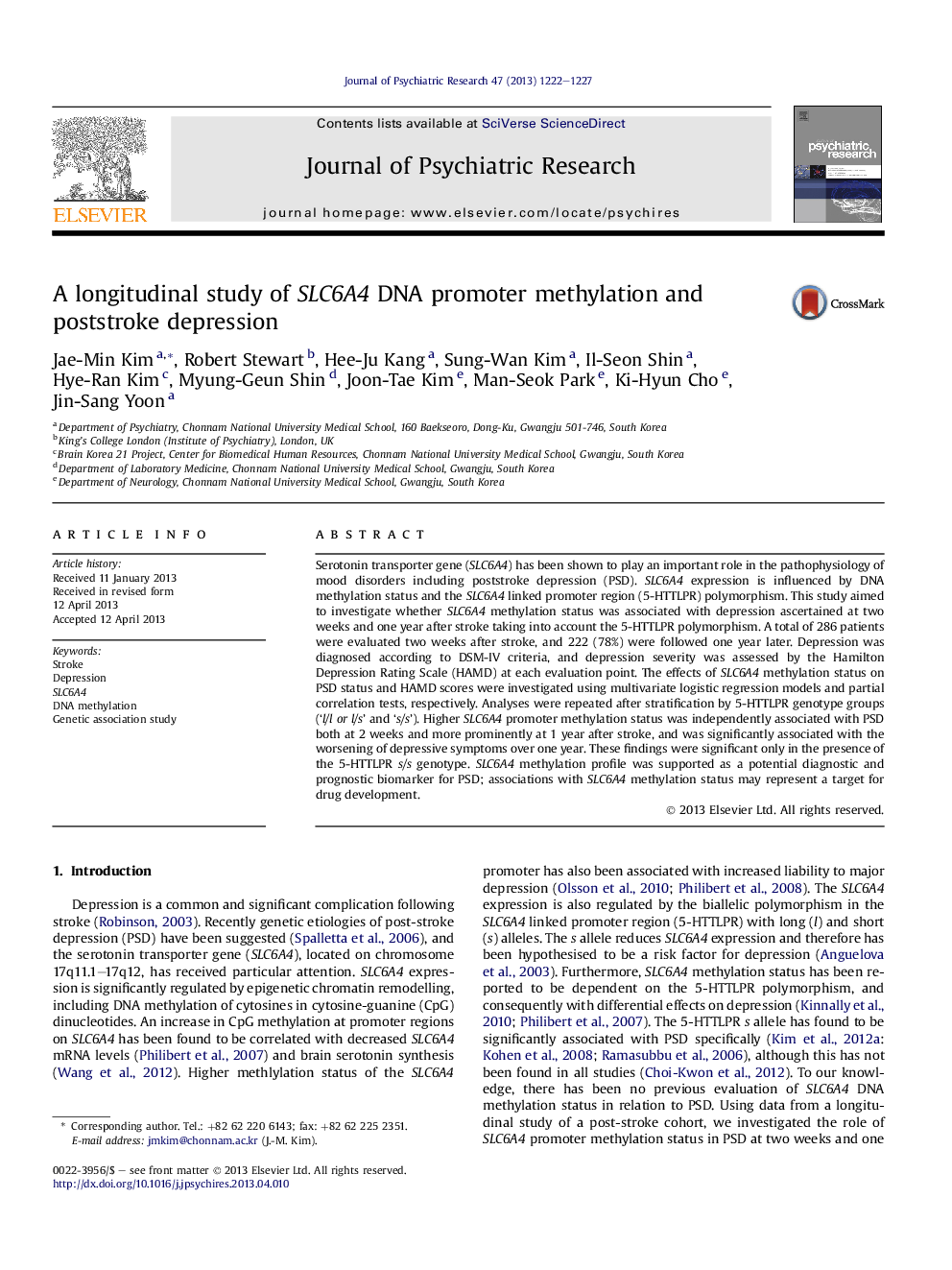| Article ID | Journal | Published Year | Pages | File Type |
|---|---|---|---|---|
| 10302233 | Journal of Psychiatric Research | 2013 | 6 Pages |
Abstract
Serotonin transporter gene (SLC6A4) has been shown to play an important role in the pathophysiology of mood disorders including poststroke depression (PSD). SLC6A4 expression is influenced by DNA methylation status and the SLC6A4 linked promoter region (5-HTTLPR) polymorphism. This study aimed to investigate whether SLC6A4 methylation status was associated with depression ascertained at two weeks and one year after stroke taking into account the 5-HTTLPR polymorphism. A total of 286 patients were evaluated two weeks after stroke, and 222 (78%) were followed one year later. Depression was diagnosed according to DSM-IV criteria, and depression severity was assessed by the Hamilton Depression Rating Scale (HAMD) at each evaluation point. The effects of SLC6A4 methylation status on PSD status and HAMD scores were investigated using multivariate logistic regression models and partial correlation tests, respectively. Analyses were repeated after stratification by 5-HTTLPR genotype groups ('l/l or l/s' and 's/s'). Higher SLC6A4 promoter methylation status was independently associated with PSD both at 2 weeks and more prominently at 1 year after stroke, and was significantly associated with the worsening of depressive symptoms over one year. These findings were significant only in the presence of the 5-HTTLPR s/s genotype. SLC6A4 methylation profile was supported as a potential diagnostic and prognostic biomarker for PSD; associations with SLC6A4 methylation status may represent a target for drug development.
Related Topics
Life Sciences
Neuroscience
Biological Psychiatry
Authors
Jae-Min Kim, Robert Stewart, Hee-Ju Kang, Sung-Wan Kim, Il-Seon Shin, Hye-Ran Kim, Myung-Geun Shin, Joon-Tae Kim, Man-Seok Park, Ki-Hyun Cho, Jin-Sang Yoon,
